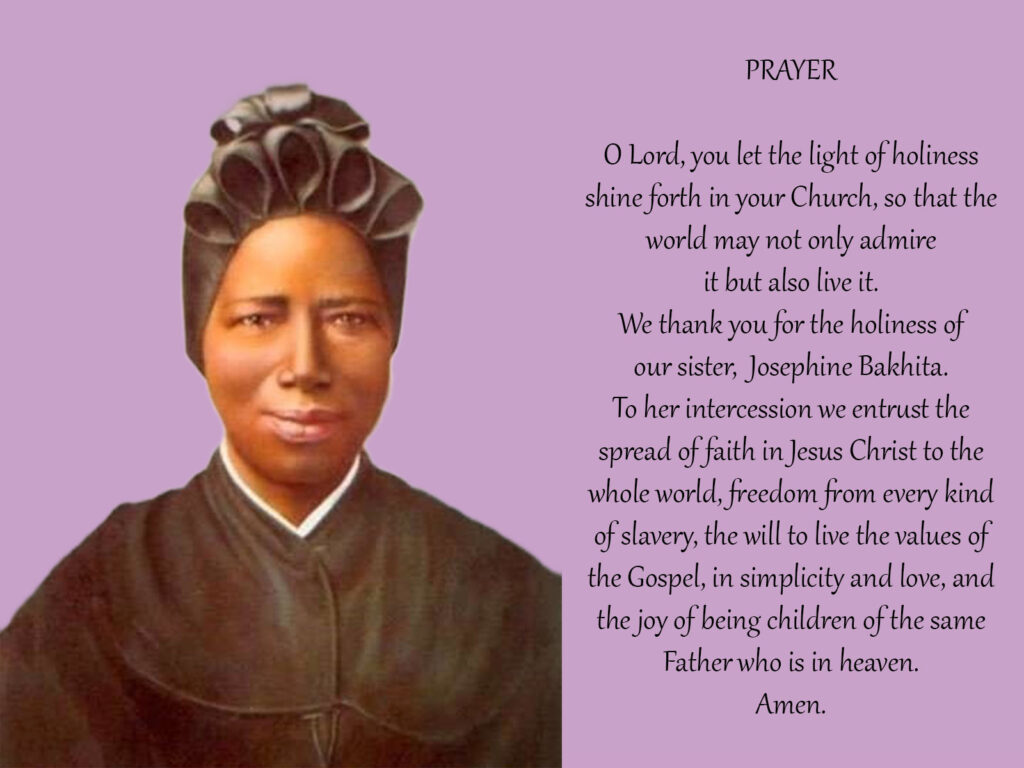St. Josephine Bakhita
Our Universal Sister

St. Josephine Bakhita, a daughter of St. Magdalene, was born in Sudan in 1869 and died in Schio (Vicenza) in 1947. At the age of approximately seven years, Bakhita was kidnapped by slave traders and consequently endured many years of physical, emotional and spiritual deprivation. Bakhita was sold and re-sold four times in a ten- year period. During this time, she was tattooed all over her body with over one hundred incisions. This torture left her immobile from the bleeding and pain for over a month during which time she almost bled to death.
The name “Bakhita”comes from the Arabic language and means “the lucky one.” This African flower, who knew the anguish of kidnapping and slavery, bloomed marvelously in Italy, in response to God’s grace, with the Canossian Daughters of Charity. On December 8, 1896 Josephine Bakhita was consecrated forever to God whom she called with the sweet expression “the Master!” Her humility, her simplicity and her constant smile won the hearts of all citizens. Her sisters in the community esteemed her for her unalterable sweet nature, her exquisite goodness and her deep desire to make the Lord known.
On October 1, 2000, she was canonized and became Saint Josephine Bakhita. She is venerated as a modern African saint and as a saint with a special relevance to slavery and oppression. Pope Benedict XVI cited St. Bakhita as an example of a saint of our time because though she suffered the tortures of slavery, she had hope no longer simply the modest hope of finding less cruel masters but the great hope that she is ‘definitely loved and awaited by this Love’, no longer as a slave, but a free child of God. (Spe Salvi no. 3). Pope Francis set St. Josephine Bakhita as an example of one who depended on God as the true Master of every human life. This experience became a source of great wisdom for this humble daughter of Africa”. (GE 32)
She is venerated today as Patron Saint of the victims of human trafficking, an example and a solace to all who suffer, especially those who have been exploited. Faith can be an important component in the road to recovery for many survivors, as was the case for Bakhita. Her own story, in turn, can serve as a balm for others. (Elizabeth Lee, 2020)
